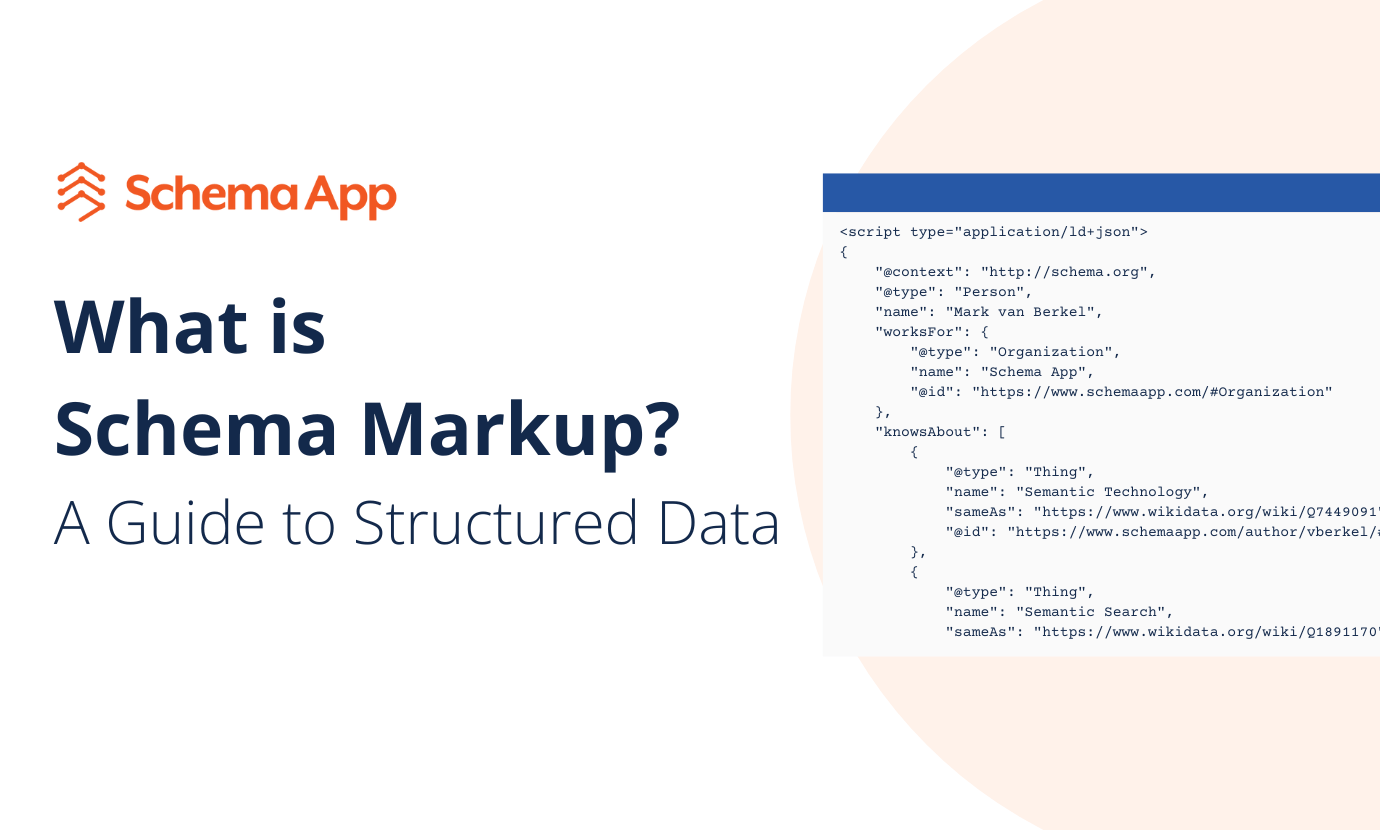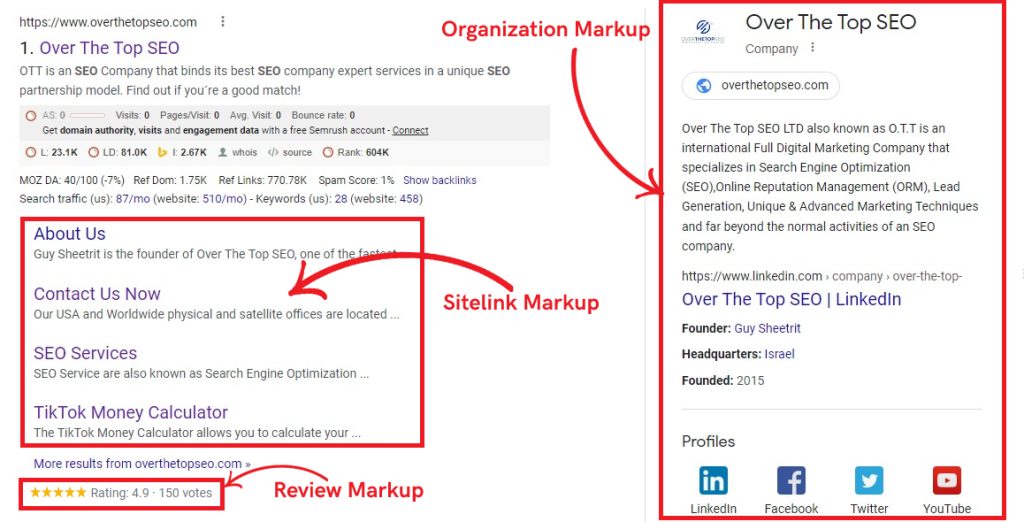Have you ever wondered why some Google search results stand out more than others? It isn’t magic—it’s schema markup working behind the scenes. If you’re looking for actionable ways to boost your organic rankings, increase click-through rates, and help search engines understand your site better, you need to know how to use schema markup for better SEO. In this comprehensive, step-by-step guide, you’ll discover what schema is, why it matters, how to implement it, and how every business—from bloggers to ecommerce sites—can harness its benefits. Read on to become the schema hero your website needs!
What is Schema Markup?
Schema markup, also known as schema or structured data, is code (often in JSON-LD or Microdata format) that you add to your web pages. This code helps search engines better interpret your content and, in turn, can enable enhanced search results known as “rich snippets.”

Put simply, schema is a shared vocabulary for content, allowing Google, Bing, and other search engines to know if your page is about a product, review, recipe, FAQ, event, and so on. Schema.org is the central resource for these definitions, and its use is strongly encouraged by Google’s official structured data guidelines.

Why Schema Markup Matters for Better SEO
Here’s why every site owner should pay attention to schema for better SEO:
- Improved Visibility in SERPs: Schema makes your listings stand out with enhanced features such as stars, ratings, images, and FAQs.
- Higher Click-Through Rates: Rich snippets capture user attention and can drive more organic traffic to your site.
- Search Engine Understanding: Your site’s content becomes clearer to bots, leading to more relevant indexing.
- Eligible for Voice Search and Rich Results: Schema is essential for appearing in featured snippets and Google Assistant responses.
- Supports All Content Types: From articles and products to job postings, events, videos, and how-to guides, schema covers almost every use case.
- Reduced Ambiguity: Schema removes confusion around complex data, especially with entities like organizations, people, and creative works.
- Mobile and Semantic Web Friendliness: Better compatibility with evolving search technologies, including mobile-first indexing.

Benefits of Implementing Schema Markup
- Enhanced rich snippets for articles, products, reviews
- Increased CTRs and search impressions
- Potential progression to featured snippets
- Improved eligibility for Google’s “People Also Ask” and knowledge panels
- Explicit identification of organization and local business details
- Future-proofing for new search features and AI-driven search
- Boost in trust and authority signals

Key Use Cases & Real-World Examples
No matter your industry, you can use schema markup for better SEO. Here are several high-impact use cases you should consider:
- Recipe Sites: Add recipe markup for cooking time, ingredients, and nutritional info to trigger the attractive “recipe card” in results.

- Ecommerce Stores: Use Product schema for prices, stock status, and ratings.

- Blogs: Mark up articles with headline, date, author, and featured image for Top Stories carousel eligibility.
- Events: Event markup displays event name, location, date, and links in search.
- FAQ Pages: FAQ schema can get your questions and answers shown directly in Google results.

- Local Businesses: Use LocalBusiness markup to showcase opening hours, location, and reviews.
- Job Boards: JobPosting schema can have your jobs featured in Google for Jobs.
Step-by-Step: How to Use Schema Markup for Better SEO
Implementing schema markup for better SEO isn’t as technical as you might think. Here’s a reliable, repeatable process anyone can follow:
1. Decide What to Mark Up
Audit your pages: are you highlighting articles, products, events, people, reviews, services, courses, or organizations? Each content type has a matching schema.
2. Select the Right Schema Type
Visit Schema.org for a list of all types. Use Google’s official documentation to find required and recommended properties for each.
3. Generate the Code
You can hand-code schema in JSON-LD format, or use online generators and plugins for WordPress. Tools like RankRanger, Merkle, or SEO plugins automate this.

4. Add the Markup to Your Webpage
Paste the generated JSON-LD code directly into your page’s <head> section, or use the relevant settings in your CMS or schema plugin.
5. Test Your Schema Markup
Use Google’s Rich Results Test and Schema Markup Validator to check for errors and preview your markup’s effect.

6. Monitor and Optimize
Check Google Search Console’s enhancements reports to spot coverage issues. Iterate by adding more fields, correcting errors, and keeping up with new schema types.
Challenges, Myths & Common Objections
While schema markup is powerful, there are misconceptions and hurdles:
- Myth: Schema guarantees rich results or higher rankings. Truth: It makes you eligible, not guaranteed.
- Myth: Schema is only for technical SEOs. Reality: Anyone can use generator tools or plugins—no coding degree needed.
- Challenge: Markup errors may disqualify pages from rich results. Always test before publishing.
- Objection: “I don’t see instant results.” Sometimes Google takes time to process changes. Be patient and monitor coverage.
- Concern: Worries about site speed. JSON-LD, the recommended format, is lightweight and won’t slow your site.
- Myth: Schema is only for specific sites. Everyone, including small businesses, can benefit.
FAQs: How to Use Schema Markup for Better SEO
What is schema markup in SEO?
Schema markup is structured code added to your webpages that helps search engines understand your content, enabling rich search results that drive visibility and clicks.
How does schema markup improve SEO?
Schema helps search engines interpret your pages more accurately, increasing your eligibility for rich snippets, higher CTRs, featured snippets, and better rankings.
Is schema markup a ranking factor?
Schema is not a direct ranking factor, but it strongly supports improved search appearance, which leads to more engagement and, indirectly, better rankings through higher CTRs and dwell time.
What are rich snippets and how does schema enable them?
Rich snippets are enhanced search results featuring images, ratings, dates, FAQs, and more. Schema markup is the method that makes these enhanced listings possible.
Do I need coding skills to use schema?
You don’t need advanced programming skills; plugins and online schema generators make it fast and accessible for everyone.
Which format should I use: JSON-LD or Microdata?
JSON-LD is Google’s preferred format. It’s clean, easy to implement, and independent of your HTML structure.
How do I test if my schema is working?
Use Google’s Rich Results Test or Schema Markup Validator to identify and fix errors before publishing live.
How long does it take to see schema-driven rich results?
It can take anywhere from a few days to several weeks for Google to process and reflect schema changes in SERPs.
Can schema markup help my local business?
Yes, LocalBusiness and Organization schema greatly improve your odds for knowledge panel appearances and enhanced local listings.
What are the risks of misusing schema?
Incorrect or misleading markup can result in penalties or removal of rich snippets. Always provide honest, relevant, and complete data, and validate using recommended tools.
Do all websites need the same schema?
No, tailor your markup to your unique content: articles, products, services, reviews, recipes, events, and so on.
Is schema markup free to use?
Yes, schema markup is supported openly by Schema.org and Google. You can implement it yourself or use free/paid plugins depending on your CMS.
Conclusion: Start Using Schema Markup for Better SEO Today
Schema markup isn’t just an advanced SEO option—it’s an essential tool for future-proof websites. Knowing how to use schema markup for better SEO equips you to boost CTR, increase trust, and stand out on crowded SERPs with rich and engaging results. It’s now easier than ever to get started: audit your site, choose relevant schema types, use generators and validation tools, and keep optimizing as Google’s ability to process structured data evolves.
Want even better SEO results? Make schema part of your on-page and technical strategy. Don’t just rely on keywords—give search engines the structured data they need to reward your website. For further reading, check out Google’s structured data guide or browse leading platforms like SEMrush and Umbraco for more in-depth strategies.
Finally, remember: Even small improvements in how you communicate with search engines can lead to big gains. Start using schema today and experience the difference better markup makes for your SEO.
